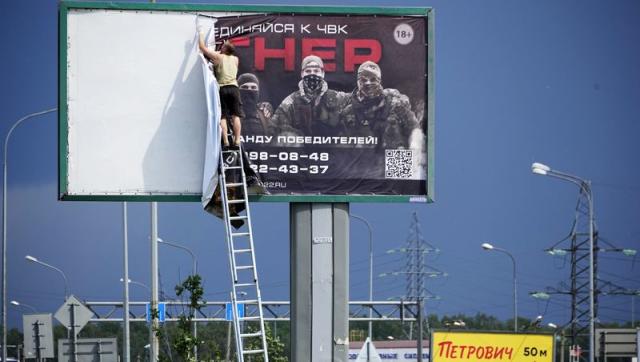What we know about Russia’s armed rebellion and its aftermath

Views (128)

Led by Yevgeny Prigozhin, the Wagner mercenary group was employed by Russia to fight against Ukraine in the war. On Friday, the group rebelled and began marching toward Moscow. Unnamed U.S. officials told The New York Times that, according to U.S. intelligence, at least one of Russian President Vladimir Putin’s cabinet members knew of the rebellion in advance — although whether they were part of the rebellion or knew it through leaked information is unclear.
Led by Yevgeny Prigozhin, the Wagner mercenary group was employed by Russia to fight against Ukraine in the war. On Friday, the group rebelled and began marching toward Moscow.
Here are the latest updates:
Wednesday, June 28
Some Russian officials are accused of working with Prigozhin by American intelligence from intercepted electronic communications — which received a response from a Kremlin spokesperson, who called the claim “gossip,” per the Times. But U.S. officials question how seamlessly the Wagner group made its way toward Moscow without someone on the inside.
One cabinet member is under particular scrutiny
For now, Putin is “reluctant to change people” in his leadership, Alexander Baunov, who is a senior fellow at the Carnegie Russia Eurasia Center, told the Times.
“But if the secret service puts files on Putin’s desk... it may change,” he finished.
Tuesday, June 27
Russian President Vladimir Putin commented for the first time on Monday evening since the Wagner group stopped its advance toward Moscow.
Prigozhin was confirmed to have made it safely to Belarus by President Alexander Lukashenko, per the Post.
“All the necessary decisions were immediately taken to neutralize the threat that had arisen,” Putin said, per the Post. “An armed rebellion would have been suppressed in any case.”
Monday, June 26
Moscow has steadily returned to normal over the weekend after the mercenary Wagner group led by Yevgeny Prigozhin halted its approach on Saturday. The blatant movement against Russian President Vladimir Putin’s leadership has called into question his authority and the stability of Russia.
Leaders from across the globe commented on the “cracks” within Russia’s political system following the rebellion.
U.S. Secretary of State Antony Blinken said that the insurrection was successful in creating “more cracks in the Russian facade,” per Reuters.
More support from the European Union, along with an additional aid package from Australia, is on its way to support Ukraine in the war, the Post reported.
Prigozhin, the Wagner group leader, made a deal to leave Russia and enter Belarus, an ally of Russia. With that spotlight shed on Russia’s ally, Germany is sending soldiers to Lithuania to secure the eastern border shared with Belarus, per the Post.
Saturday, June 24
Late Saturday, the paramilitary group led by Yevgeny Prigozhin halted its march toward Moscow.
Prigozhin said he was reacting to a Russian attack on Wagner camps, an act which the Russian Defense Ministry denied, per AP.
“Now the moment has come when blood could be spilled,” Prigozhin said in an audio recording obtained by Reuters. “Understanding ... that Russian blood will be spilled on one side, we are turning our columns around and going back to field camps as planned.”
Correction: An earlier version of this story spelled Yevgeny Prigozhin’s name incorrectly.
Related
0 Likes
